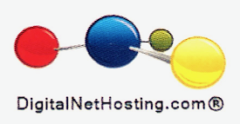Top 5 Cloud Computing Providers
Here is a list of the Top 5 Cloud Computing providers. The key parameters used for comparing these cloud platforms include when the platforms were introduced, support for various operating systems/languages, current adoption levels of the platforms and the overall potential of the platform. A good understanding of the key cloud computing platforms is critical to understand the current state of cloud computing and the overall direction of the industry. This in turn is very useful while making a choice for an appropriate cloud computing platform. Please read the following article Comparing SaaS, PaaS and IaaS to understand some of the terminology used in this article.
Amazon
Clearly the market leader in Cloud Computing and primarily a IaaS vendor.EC2 and S3 are the two most popular services available as part of Amazon Web Services. They also have the most wide variety of services available as part of their cloud platform.
- There are indications that Amazon may have a total of 1.8 million deployed instances and showing 10% overall growth in deployments
- Indications are they had a total revenue of 220 million USD revenue from their Cloud business
- There are around 100,000 customers using Amazon Web Services
Rackspace
Rackspace which has long been one of the largest players in the managed hosting market quickly transformed itself into a highly successful Cloud Computing provider primarily as an IaaS provider. They have two key services Cloud Servers and Cloud Files which are the equivalent of EC2 and S3 from Amazon.
- Indicating 100% growth in Cloud Revenues from 2008 to 2009
- Added around 40,000 new customers in the last 4 quarters
- Cloud Revenue has been 56 million USD in 2009
Salesforce.com
Salesforce.com was one of the earliest Cloud Computing companies to get setup with a specific focus on CRM and functioned as a SaaS company.Salesforce.com first started in 1999 and has grown significantly from its initial launch with a continuous focus on CRM. Force.com was launched in 2007 as a custom application development platform as an entry into the PaaS market but has not been able to garner a significant market due its proprietary platform. Given the specific nature of the platform Amazon and Rackspace have been ranked higher in this list even though Salesforce has a higher revenue.
- Total of 55,000 corporate customers and 1.5 million individual subscribers.
- Total revenue of $1.3 billion for 2009
Google
Google made a late entry into the Cloud Computing business with two services, Google Apps which primarily targets the SaaS space and the Google App Engine which provides a PaaS model for businesses and individuals to deploy their Web Apps. They have quickly made a mark with both the platforms and have made significant growth in the overall cloud computing market.
- Google Apps has 1 million customers and an approximate revenue of $50 million
- Google App Engine does not have any numbers publicly available, since the paid version launched a year back they may need some more time before we get a sense of the adoption.
Microsoft
Microsoft was the last major player to enter into the market and as expected launched a platform Azure based on their Windows/Azure stack. While they have continued to claim that Azure is not tied to .NET, the expectation is the platform will see most adoption from Microsoft shops with a focus on .NET and Windows based technologies and platforms.
- Indications are that around 10,000 customers have moved to Azure
- Since the launch has been less than 6 months back its a little early to track adoption.
- We rank it high due to the high potential of the platform and tight integration with Microsoft based development platforms.
Conclusion
Amazon and Rackspace continue to be the key players in Cloud Computing with a key focus on IaaS as the core service they offer. Given the core expertise of these companies it is unlikely that they will venture into other aspects of the Cloud and they are unlikely to offer SaaS or PaaS services anytime soon. It is highly likely that all growth in the IaaS segment of Cloud Computing will be distributed between these two companies. Microsoft and Google are likely to be key players in the PaaS space clearly segmented between .NET and Java applications. Salesforce on the other hand is likely to remain a player focused purely on the CRM market and primarily as a SaaS provider.
Check our Blog Technology Trendz for more details.
Source by Kaushik

